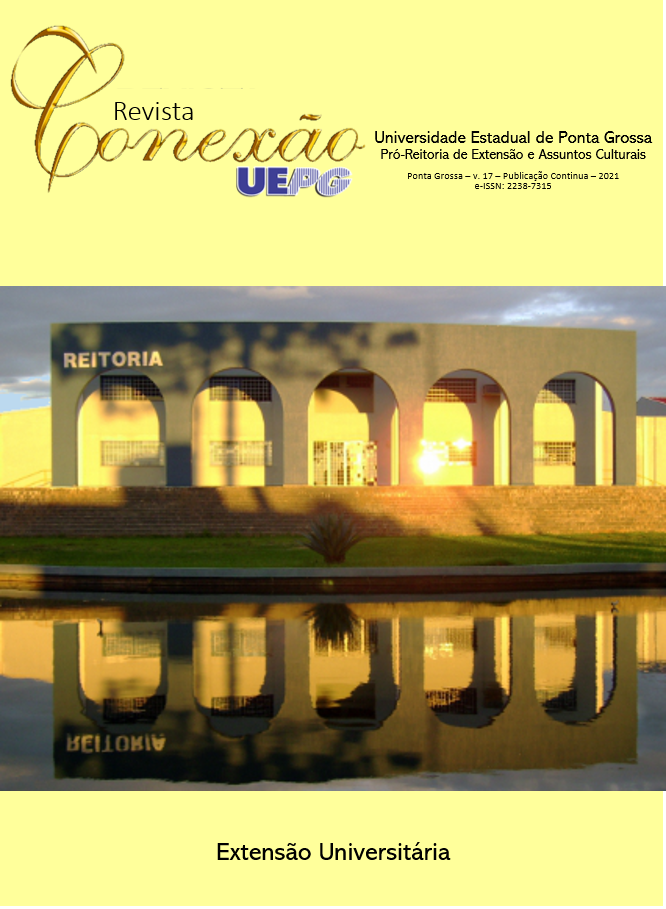EXTENSION PROJECT "UM SORRISO PELA VIDA": THE RISOTHERAPY PRACTICE IN THE HEALTH CARE HUMANIZATION
DOI:
https://doi.org/10.5212/Rev.Conexao.v.17.17403.27Abstract
This article describes the actions and results of the outreach project “A Smile for Life”, which involved clowns dressed as doctors and laughter therapy in order to develop psychological benefits for both hospitalized / institutionalized patients and participants, in addition to developing a biopsychosocial view of health care. The study was motivated by several challenges, which generated stress factors in university students, and by the process of health professional education, who faced difficulties related to a humanized relationship with patients. Participants observed and reported the development of communication skills, empathy, the ability to face adverse situations and the reduction of stress through playful activities. In addition, hospitalized patients and their companions reported feeling better with the presence of the “doctors”. This approach improved the experience and the quality of hospitalization. Therefore, the project demonstrated a positive benefit for both participants and the external community involved.
Downloads
Downloads
Published
Issue
Section
License
a) Authors retain copyright and grant the journal right of first publication with the work simultaneously licensed under a Creative Commons Attribution License that allows others to share the work with an acknowledgement of the work's authorship and initial publication in this journal.
b) By submitting an article to the Revista Conexão UEPG and having it approved, the authors agree to assign, without compensation, the following rights to the Journal: the rights of first publication and the rights to redistribute the article and its metadata to the indexing and reference services that the editors deem appropriate.
c) Readers are free to transfer, print out and use the articles published in the Journal, as long as there is always explicit mention to the author(s) and to the Revista Conexão UEPG and as long as there is no alteration of the original work. Any other use of the texts needs to be approved by the author(s) and by the Journal.






